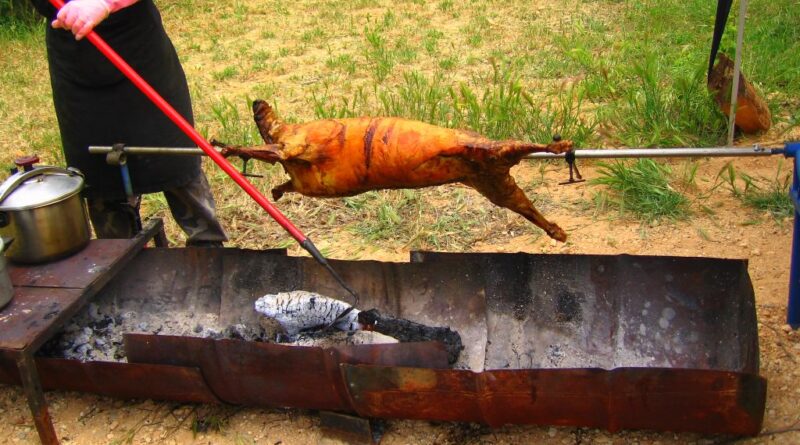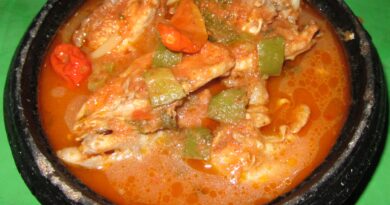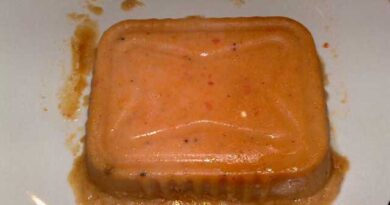Méchoui
Reveling in the Tradition and Flavor of Méchoui: A Journey Through North African Cuisine
Introduction: In the vast expanse of North African culinary traditions, few dishes are as revered and cherished as Méchoui. This centuries-old culinary tradition, originating in the Maghreb region, embodies the essence of communal feasting, celebration, and hospitality. Méchoui, a method of slow-roasting whole lamb or sheep over an open fire, yields tender, succulent meat infused with aromatic spices and smoky flavors. Join me as we embark on a journey to uncover the origins, preparation techniques, cultural significance, and sensory delights of this iconic North African delicacy.
Origins and Cultural Significance: Méchoui traces its origins to the Berber and Arab communities of North Africa, particularly Morocco, Algeria, and Tunisia. The word “Méchoui” itself is derived from the Arabic term “mashwi,” meaning roasted, grilled, or barbecued. Historically, Méchoui was reserved for special occasions such as weddings, festivals, and religious holidays, where it served as the centerpiece of lavish feasts and gatherings.
Today, Méchoui continues to hold cultural and symbolic importance, symbolizing generosity, abundance, and hospitality. It brings people together, fostering a sense of community and kinship as friends and family gather around the communal table to share in the bounty of the feast. From the bustling streets of Marrakech to the remote villages of the Atlas Mountains, Méchoui remains a cherished tradition, passed down from generation to generation as a testament to the rich culinary heritage of North Africa.
Ingredients and Preparation: The hallmark of Méchoui lies in its simplicity, with just a few basic ingredients and traditional techniques yielding spectacular results. The key components typically include:
- Whole Lamb or Sheep: The centerpiece of Méchoui is a whole lamb or sheep, selected for its size, tenderness, and quality. The animal is traditionally raised in the open pastures of North Africa, grazing on wild herbs and grasses, which impart a unique flavor to the meat.
- Spice Rub: A fragrant spice rub, known as “chermoula” or “ras el hanout,” is applied to the surface of the meat, infusing it with a medley of aromatic spices such as cumin, coriander, paprika, cinnamon, and saffron. The spice rub may also contain garlic, ginger, lemon zest, and fresh herbs such as parsley, cilantro, and mint, adding depth and complexity to the flavor profile.
- Fire and Smoke: Méchoui is traditionally cooked over an open fire, either outdoors on a spit or in a pit dug into the ground. The lamb is skewered onto a long metal rod or wooden spit, then slowly rotated and basted with its own juices to ensure even cooking and maximum flavor infusion. The smoky aroma of the fire imparts a distinctive character to the meat, enhancing its savory and aromatic qualities.
- Time and Patience: One of the hallmarks of Méchoui is its slow cooking process, which requires time, patience, and careful attention to detail. Depending on the size of the animal and the cooking method used, Méchoui may take anywhere from several hours to an entire day to cook to perfection. The meat is cooked low and slow until it is tender and succulent, with a crisp, golden-brown exterior and melt-in-your-mouth texture.
Cultural Significance: Méchoui is more than just a culinary tradition; it is a cultural ritual that brings people together in celebration of life, friendship, and shared heritage. From the bustling souks of Marrakech to the remote villages of the Sahara Desert, Méchoui is a symbol of hospitality, generosity, and abundance. It embodies the spirit of North African culture, where food is more than sustenance—it is a form of expression, a means of connection, and a source of joy and fulfillment.
In addition to its cultural significance, Méchoui also plays a role in religious and spiritual practices, particularly during Islamic holidays such as Eid al-Adha (the Festival of Sacrifice). During this time, families gather to commemorate the story of Ibrahim’s willingness to sacrifice his son Isma’il as an act of obedience to God. The ritual of sacrificing an animal, such as a lamb or sheep, and sharing the meat with family, friends, and the less fortunate is a central aspect of the holiday, symbolizing sacrifice, gratitude, and compassion.
Sensory Delights: The sensory experience of Méchoui is nothing short of extraordinary, engaging all five senses in a symphony of flavors, aromas, and textures. As the lamb slowly cooks over the open fire, the air is filled with the tantalizing aroma of spices, smoke, and sizzling fat. The sight of the golden-brown skin crisping and caramelizing under the intense heat of the flames is mesmerizing, evoking a sense of anticipation and excitement.
When the Méchoui is finally ready, the meat is carved and served with an array of accompaniments such as couscous, bread, salads, and condiments. The first bite yields a burst of flavor—a harmony of savory, smoky, and aromatic notes that dance on the palate. The meat is tender and succulent, with a melt-in-your-mouth texture that is both comforting and indulgent. Each bite is a celebration of tradition, craftsmanship, and the bountiful gifts of the land.
Conclusion: In a world filled with culinary delights, Méchoui stands out as a cherished tradition that embodies the spirit of North African culture and hospitality. Its rich history, simple ingredients, and traditional techniques have stood the test of time, captivating the hearts and palates of food enthusiasts around the world. Whether enjoyed at a festive gathering, a family celebration, or a special occasion, Méchoui invites us to savor the flavors of North Africa, while celebrating the timeless traditions and cultural heritage of the region. As we gather around the communal table to share in the bounty of the feast, we are reminded of the power of food to bring people together, forge connections, and create lasting memories.



